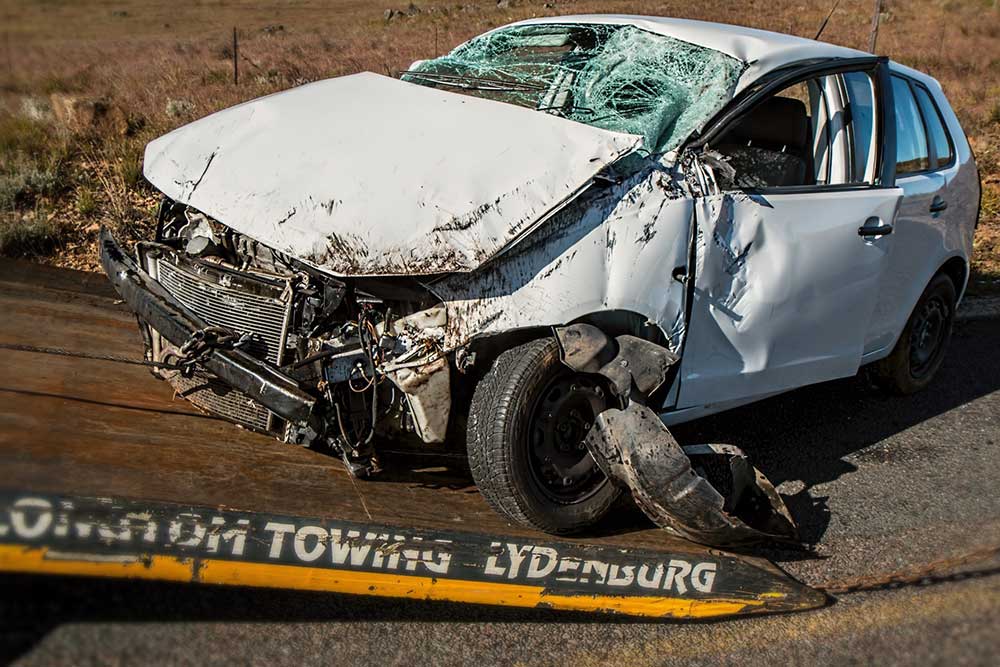
When car accident injuries limit your ability to work, one of your first questions is usually “How can I stay financially secure as I recover?” The loss of a steady income can create financial strain, especially when medical expenses begin to rise.
If you follow the right process and collect strong proof, you can obtain compensation for your lost wages. And yes, this also applies to the self-employed. Here, we share the main steps and documentation to provide to your insurance company to make your claim process easier and ensure maximum compensation.
What Counts as Lost Wages and Income Loss?
Lost wages are the usual income (salary and tips) you would have received if no auto accident injury had occurred. Income loss is a broader term and includes both lost wages and lost earning capacity. It refers to future income that you miss because you can’t work as many hours, handle as many clients as you used to, or advance to higher-paying positions. If you need to change your job to a lower-paying position, this compensation should also cover the difference between your previous pay and the reduced income.
Lost Wages for Self-Employed Individuals, Freelancers, and Contractors
It can be more difficult to prove car accident lost wages for self-employed workers or small business owners. There is no employer to verify your sick days or confirm your regular paycheck. Yet, insurance firms or the court still expect evidence of your usual earnings.
To demonstrate the direct connection between your personal injury and your earning capacity, you may need to provide client invoices, bank statements that reflect your regular income, and tax returns. The proof of lost wages may also include copies of canceled contracts, emails from clients discussing changes in workload or paused contracts after the motor vehicle accident, and medical notes specifying your work limitations and recovery timeline.
How Insurance Companies Handle Lost Wage Claims
In Massachusetts, most claims related to the recovery of lost wages start with your own auto insurer through Personal Injury Protection, or PIP. This is a part of every regular car policy in the state, and it’s related to how the no-fault system functions. PIP assists in covering specific losses, like a portion of your earnings, regardless of who was at fault for the car accident.
According to Massachusetts General Laws Chapter 90, Section 34M, your insurance company is required to provide these benefits after you present valid proof of your damages. Chapter 90, Section 34A determines that you can receive up to $8,000 in total for medical expenses and lost wages, and it typically covers 75% of your regular wages while you take time off work to heal from your injuries.
If your income loss exceeds what PIP can cover, or if your insurer disputes part of your claim, it may be time to consult an attorney about pursuing the remaining amount through other legal options. Court case or not, strong documentation is the foundation of any successful claim.
Necessary Documentation
So, to approve your lost wages claim, your insurance company needs to understand how the car accident has resulted in the lost income. The easier they can compare your previous income to your post-accident earnings, the fewer questions and delays you’ll face. Documents that usually help include:
- Recent pay stubs or payroll summaries, showing what you typically earn.
- A short letter from your employer that confirms your job title, pay rate, and the period you’ve been absent.
- Bank statements that reflect your usual deposits or business income.
- Invoices, contracts, or bank records, if you’re self-employed, to demonstrate your normal workload.
- Tax returns from previous years to back up your average income.
- Emails or notes about canceled work to show specific losses tied to your injuries.
Proving Lost Opportunities and Earning Capacity
The impact of missing paychecks is only part of what a car accident can cost you. There are lost opportunities that may be even more significant. Your personal injury claim can include future losses, too, given that you can prove what you could have earned. You might have had to delay plans to scale your business or lose a chance for a promotion or other career opportunities.
However, it’s often more challenging to calculate this type of loss than regular lost wages. Unlike a regular paycheck, future income isn’t fixed. You have to make a forecast about how your career or business would have progressed if the car accident hadn’t occurred. When dealing with such claims, we may seek advice from financial or vocational professionals to assess potential future lost earnings.

Get a Free Case Evaluation
Steps to File a Lost Wage Claim After a Car Accident
When you recover lost wages, your main goal is to make sure all the details connect logically — your injuries, your time away from work, and the income you’ve lost. Here are the typical steps you’ll need to follow to document your losses and file a strong claim:
-
Get a doctor’s note
It demonstrates that your period of absence and your medical treatment are linked directly to the car accident.
-
Collect financial records
Gather as much proof of your income as you can. The more complete your records, the easier it is to show how the car accident affected your income.
-
Notify your insurer
Once your paperwork is in order, contact your auto insurance company to open a PIP claim. According to the Massachusetts statute of limitations for a personal injury, you generally have up to two years from the date of the crash to file a claim. Yet, it’s best to start as soon as possible so that your insurer has enough time to confirm your information and approve your benefits.
-
Seek legal guidance
A personal injury attorney can handle the negotiations and, if needed, move the car accident case forward in court.
Calculating Lost Wages
When we calculate lost wages for employees, we begin with the normal pay rate or hourly wage and multiply it by the number of workdays that have been missed. If the working hours or earnings are different each time, we may take an average from a few previous months. Bonuses and tips can also be counted if they were part of the normal pay.
For self-employed people, we also examine financial records that reflect the amount of income before the car accident and then consider how the injury affected this pattern. If you lose opportunities for professional growth that would have a clear monetary representation (such as a salary increase due to a promotion), we also add this amount. If there are no set numbers, it’s possible to involve experts for an evaluation of lost income opportunities.
Lost Earning Capacity: When and How to Claim
Lost earning capacity usually comes into play when your injuries result in long-lasting restrictions. For instance, you have to work fewer hours, or you’re unable to pursue higher-paying jobs.
To support such a claim, you could use medical records that detail physical or mental limitations. You might also include statements from your employer regarding alterations to your job tasks or working hours. Additionally, expert assessments from career or financial experts who can estimate your reduced earning potential may be beneficial.
These cases are more complex than standard wage claims, but they ensure that your financial compensation reflects not only what you’ve lost so far, but also the future costs of your injuries.
When Legal Advice Is Needed
Claims for lost wages may appear simple initially, but insurance adjusters may make the process more complex. They might challenge the amount of income reported or request additional evidence. The job of a personal injury lawyer is to ensure your insurance claim is completely backed up and properly presented from the beginning.
Legal advice becomes particularly crucial in the case of serious injuries, when medical bills or lost wages go beyond the $8,000 PIP cap. It can also be helpful when you’re unsure what to say to insurance after an accident, as the wrong wording or missing details can unintentionally weaken your claim.
An experienced car accident attorney can communicate with the insurance company on your behalf, provide additional evidence when needed, and take the next legal steps if a fair settlement isn’t offered. If the crash wasn’t your fault, or the responsibility is shared, the lawyer can also help you seek compensation from the other party.
Free Consultation and Next Steps
Every injury case is different, and the best way to understand your options is by having a direct conversation with an attorney. Michael Kelly Injury Lawyers has helped over 10,000 accident victims throughout Massachusetts recover compensation. We’re headquartered in Boston, but our law firm represents clients in every part of the state.
If you or your loved ones have suffered a car accident injury, it’s time to seek proper legal assistance. A free consultation gives you an opportunity to ask questions, discuss your circumstances, and discover what actions should be taken next, all without any obligation or the upfront personal injury lawyer cost.
Contact our team today by phone or through our online form to recover damages with confidence!
FAQs
Can independent contractors claim lost wages?
Independent contractors can claim lost wages, but the process looks a little different. With no employer to confirm their salary, they need to provide evidence of earnings on their own. This could involve tax returns, client invoices, and bank statements. The main goal is to demonstrate the level of their self-employment income before the car accident occurred and how it decreased afterward.
What documentation is necessary?
Medical and financial evidence is required to prove lost wages after an accident. Medical documents confirm you were unable to work for an extended period due to an injury, while financial records show how much income you lost during recovery.
How is future earning capacity calculated?
Doctors provide medical evaluations that describe your physical or cognitive limitations and how long they’re expected to last, while financial professionals predict the amount you may lose in the future depending on your employment history and skills.
Does insurance always cover income loss?
Not completely. Personal injury protection (PIP) covers up to 75% of your lost wages. However, significant or prolonged losses frequently go beyond this limit. In such situations, you can pursue further reimbursement from the driver’s insurance company or by filing a personal injury lawsuit.






